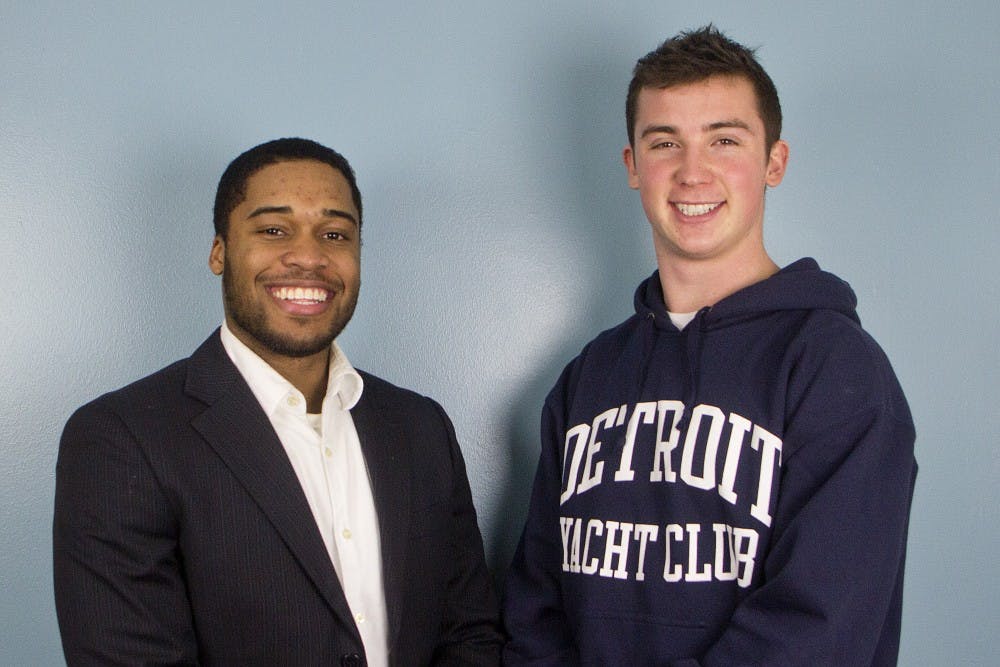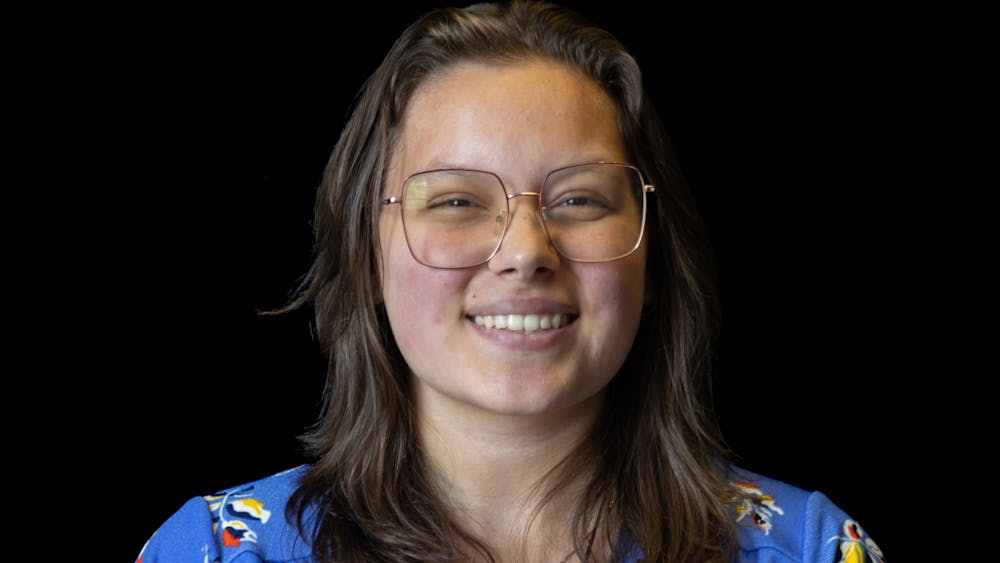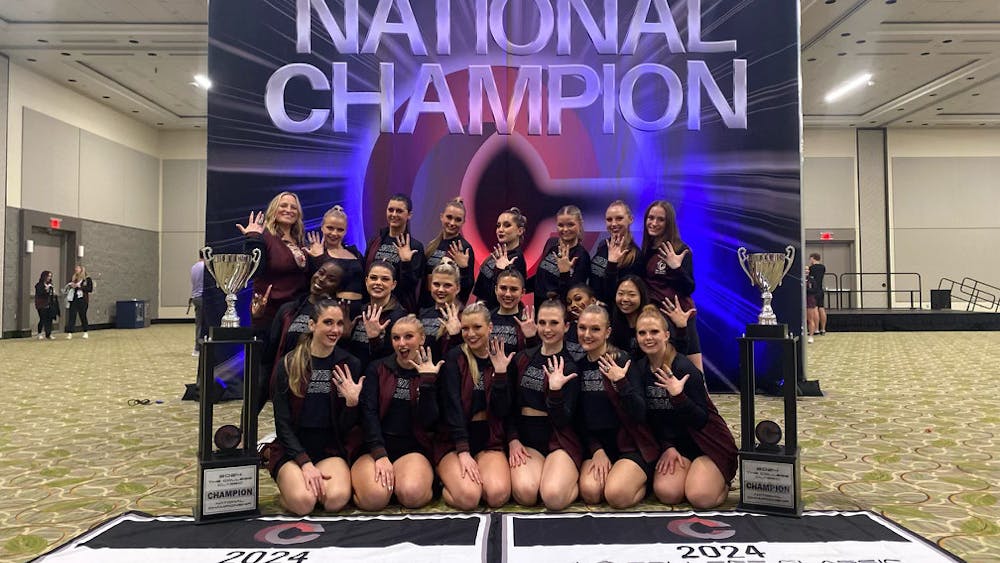Make-A-Pitch Competition prepares students for New Venture Competition
Gearing up for March’s New Venture Competition, student entrepreneurs got their first taste of the challenge late last semester.
The Make-a-Pitch competition, serving as practice for the New Venture Competition, allowed students to brainstorm product ideas and receive feedback for their inventions.
The top three teams from November's competition at Central Michigan Unviersity showcased a few of the many entrepreneurs who hope to bring their ideas to life and take top prize at NVC – a $20,000 business start-up fund.
First Place: Hydro Guide
Group Members: Lansing senior Alex Grabinski and Detroit senior Nathaniel Slappey
Inspired by a professor who performed sweat-intensive research concerning athletes, Grabinski and Slappey’s Hydro Guide seemed like an invention that could only exist on Star Trek.
Designed to be a small wristband worn by athletes, Hydro Guide would allow trainers and coaches to monitor an individual’s dehydration levels based on the amount of sweat that they produce.
“What (Hydro Guide) does is that it collects and analyzes (athlete’s) sweat and wirelessly transmits it to a tablet or a phone,” Slappey said. “The trainers on the sideline of that team can monitor hydration levels and make sure they’re not getting below that optimum line so that athletes can stay at top performance.”
Both studying to become mechanical engineers, Grabinski and Slappey have spent the last year of their class time attempting to develop Hydro Guide and make it marketable to their intended targets: the National Football League and the National Basketball Association.
“We’d want to see the trainers on the sidelines keeping tabs on all their athletes and making sure that they’re not going to cramp up,” Grabinski said.
As of the competition, the duo only has a prototype out, which Grabinski describes as “big and clunky, but workable.”
“We’re working on refining it right now,” he said. “We’re hoping to have a refined band like we imagined for the New Venture Competition in 2015 and be able to display it.”
Second Place: Acne Fix
Group Members: Royal Oak graduate student Domonique Byrd and Southhaven junio Erin Cross
As individuals who have both had their run-ins with acne and skin problems, Byrd and Cross have made it their mission to aid in the treatment of poor skin complexion. The creators of Acne Fix were unimpressed that most of the brands were exclusive to the home and couldn’t be used easily on the go.
Their solution is a drinkable, on-the-go acne solution that would work like other zit vanquishers, but without the need to drop everything and apply when necessary.
“It’s a product that’s natural and organic,” Byrd said. “It’s targeted to clearing your skin from the inside out using apple cider vinegar as the remedy.”
They came up with the idea when they were struck with how inconvenient traditional acne removal methods were. As a user of home acne remedies herself, Cross said the only natural next step was to find a way to make it marketable.
“We were trying to figure out some resolutions to that besides just your regular, normal, over the counter Proactive or similar products,” she said. “(Acne Fix) is more convenient for the consumer.”
Byrd cited her own experience and success with apple cider vinegar as an acne remover as a motivator to enter Acne Fix in the New Venture Competition.
“When we made up our idea, we just kind of brainstormed,” she said. “It took us maybe two or three hours to come up with a good solution.”
Hoping to take their product to the New Venture Competition in March, Byrd and Cross aim to see their product gracing store shelves within the near future.
Third Place: Bio Char
Group Members: Farmington Hills senior Aram Cholakian, Okemos junior John Grady and Commerce Townsip junior Matthew Mengel
Working with Detroit Bio Char, an eco-friendly company which takes organic waste and repurposes it into a zero emission carbon compound, three seniors hope to revolutionize the agricultural world with their charcoal-like substance.
Grady described Bio Char as a material which could “be put back into the earth and increase crop yields by (roughly) 400 percent” and “increase soil fertility” in an effort to help the agricultural industry.
Unlike other groups, the trio did not create their product, and are rather pitching it for a company which they interviewed for.
“There’s a team who created (this product) and we are putting it into New Venture for them," Mengel said. "What we’ve done is create the business plan.”
Grady likened their role with Detroit Bio Char as representatives who “really want to help out Detroit,” and “make Michigan a better place.”
The group said although Bio Char may seem like a revolutionary idea, the practice has already been implemented in Europe and California.
Cholakian said by the time the New Venture Competition rolls around, the group planned on changing parts of their pitch by adding more substance to their product.
“(The judges) were questioning some of our facts and whether or not (Bio Char) was actually viable,” he said. “We’re actually going to go down to Detroit over break and take a look to see if this can be really done and who would be interested in it.”
The group expressed interest in repurposing abandoned and dilapidated houses in Detroit and using the lumber from sites as means for creating fuel.
“We can’t use specific materials in the house because of asbestos and other diseases so we can only take the wood,” Mengel said. “Floorboards, sidings, there’s a lot we can use though.”
Cholakian said the group also envisioned Bio Char taking wood from areas devastated by hurricanes and other natural disasters to ensure a quick and eco-efficient clean up.





